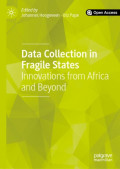
Data collection in fragile states :innovations from Africa and Beyond
Fragile countries face a triple data challenge. Up-to-date information is needed to deal with rapidly changing circumstances and to design adequate responses. Yet, fragile countries are among the m…
- Edisi
- -
- ISBN/ISSN
- 9783030251208
- Deskripsi Fisik
- xxxi, 243p. : ill.
- Judul Seri
- -
- No. Panggil
- 338.90072 DAT d
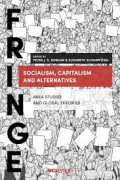
Socialism, capitalism and alternatives:area studies and global theories
In 1989 the Berlin Wall came down. Two years later the Soviet Union disintegrated. The collapse of communism in Eastern Europe and the Soviet Union discredited the idea of socialism for generations…
- Edisi
- -
- ISBN/ISSN
- 9781787353824
- Deskripsi Fisik
- xvii, 234 p. :
- Judul Seri
- -
- No. Panggil
- 330.9 SOC s

Balancing the self:Medicine, politics and the regulation of health in the twe…
Concepts of ‘balance’ have been central to modern politics, medicine and society. Yet, while many health, environmental and social challenges are discussed globally in terms of imbalances in bi…
- Edisi
- -
- ISBN/ISSN
- 9781526132123
- Deskripsi Fisik
- xvi, 348p.: ill.
- Judul Seri
- -
- No. Panggil
- 362.19646200941 BAL b
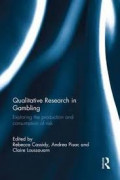
Qualitative research in gambling:exploring the production and consumption of …
Gambling is both a multi-billion-dollar international industry and a ubiquitous social and cultural phenomenon. It is also undergoing significant change, with new products and technologies, regulat…
- Edisi
- -
- ISBN/ISSN
- 9781138924550
- Deskripsi Fisik
- xii, 263 pages: illustrations ; 24 cm
- Judul Seri
- -
- No. Panggil
- 300 CAS q
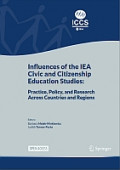
Influences of the IEA Civic and Citizenship Education Studies:Practice, Polic…
This open access book identifies the multiple ways that IEA’s studies of civic and citizenship education have contributed to national and international educational discourse, research, policymaki…
- Edisi
- -
- ISBN/ISSN
- 9783030711023
- Deskripsi Fisik
- xxiv, 286p.: ill.
- Judul Seri
- -
- No. Panggil
- 371 INF i
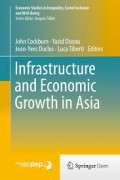
Infrastructure and economic growth in Asia
Public spending on infrastructure plays an important role in promoting economic growth and poverty alleviation. Empirical studies unequivocally show that under-investment in infrastructure limit ec…
- Edisi
- -
- ISBN/ISSN
- 9783319031378
- Deskripsi Fisik
- 148 p.
- Judul Seri
- -
- No. Panggil
- 330 COC i

Togetherness :a new heritage deal for Europe
Europe’s cultural heritage is a vast, multifaceted mosaic showing who we were, who we are and who we aspire to be. We are all responsible for this huge, precious and fragile legacy. The coronavir…
- Edisi
- -
- ISBN/ISSN
- 9789286148453
- Deskripsi Fisik
- 40 p.
- Judul Seri
- -
- No. Panggil
- 363 PAR t
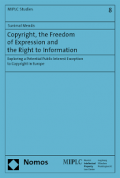
Copyright, the Freedom of Expression and the Right to Information
With the advent of a global community, which draws its sustenance from the unfettered communication of ideas and expression, it is worth reflecting on the role of copyright law and considering whet…
- Edisi
- -
- ISBN/ISSN
- 9783845231266
- Deskripsi Fisik
- 84 p.
- Judul Seri
- -
- No. Panggil
- 340 MEN c
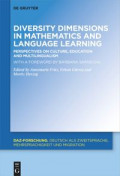
Diversity dimensions in mathematics and language learning:perspectives on cul…
Extensive research is available on language acquisition and the acquisition of mathematical skills in early childhood. But more recently, research has turned to the question of the influence of spe…
- Edisi
- -
- ISBN/ISSN
- 9783110661941
- Deskripsi Fisik
- XV, 417 p.
- Judul Seri
- -
- No. Panggil
- 370 DIV d

Regulating transitions from school to work :an institutional ethnography of a…
How are activation programs for the young unemployed implemented? How do grassroot-level bureaucrats deal with competing rationalities and demands for action? Transition policies increasingly aim a…
- Edisi
- -
- ISBN/ISSN
- 9783839457061
- Deskripsi Fisik
- 310 p.
- Judul Seri
- -
- No. Panggil
- 370 DAH r

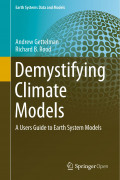
 Karya Umum
Karya Umum  Filsafat
Filsafat  Agama
Agama  Ilmu-ilmu Sosial
Ilmu-ilmu Sosial  Bahasa
Bahasa  Ilmu-ilmu Murni
Ilmu-ilmu Murni  Ilmu-ilmu Terapan
Ilmu-ilmu Terapan  Kesenian, Hiburan, dan Olahraga
Kesenian, Hiburan, dan Olahraga  Kesusastraan
Kesusastraan  Geografi dan Sejarah
Geografi dan Sejarah